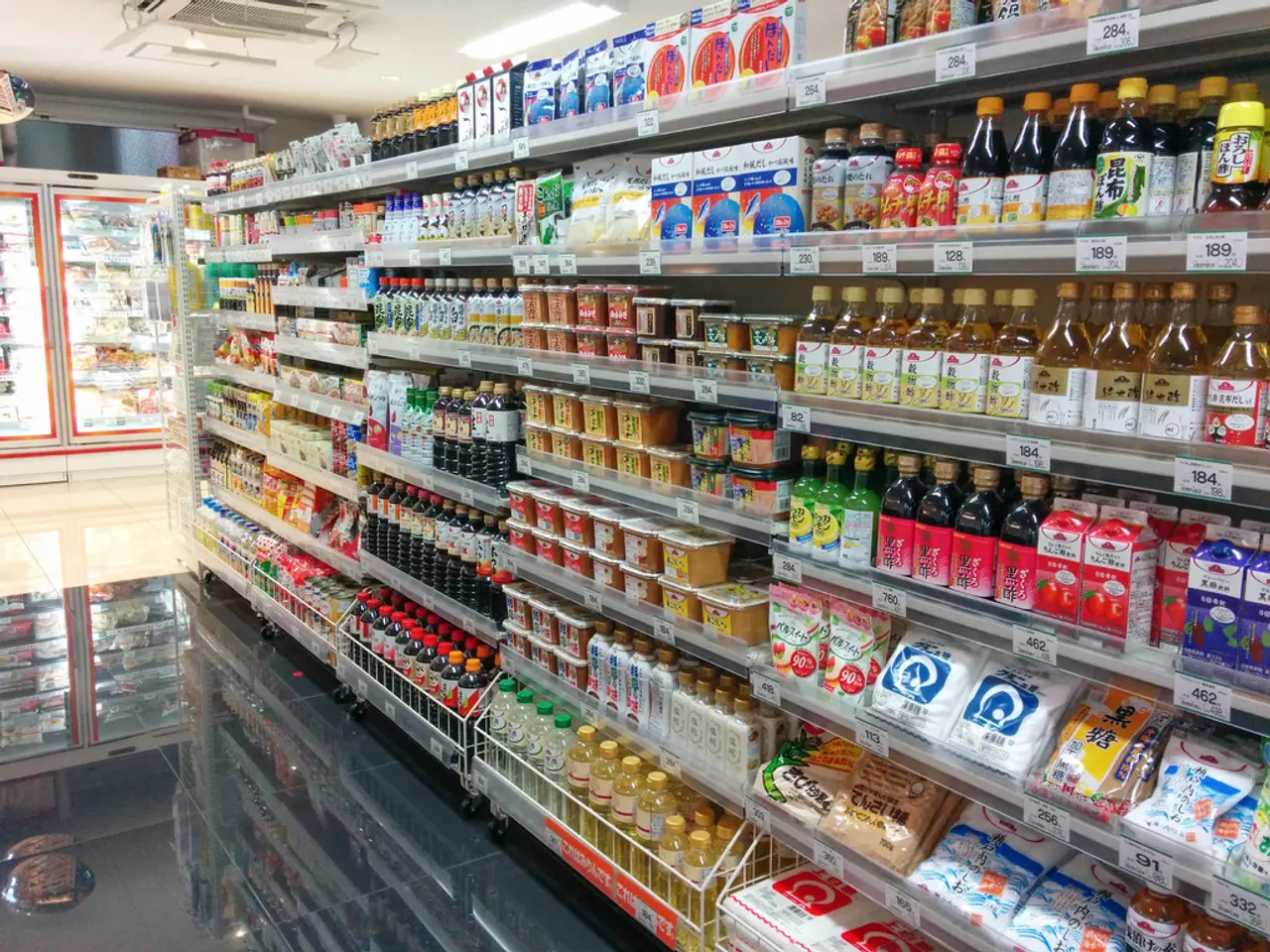Shoppers question market savings during price fluctuations
In the bustling food markets of Turkey, consumers are expressing growing concerns about erratic pricing, particularly in staples such as cheese, milk, and butter. This unease stems from observations of fluctuating prices that seem to bear little relation to market dynamics.
Recent months have seen a wave of criminal complaints against 29 food businesses for engaging in unfair pricing practices. The Turkish Ministry of Trade, in its efforts to maintain fair competition, has imposed fines totaling approximately 70,000 euros on the tea company Çaykur for an unfair price policy that was perceived as an insult to the popular national yogurt drink Ayran. This move was aimed at preventing unfair competition against Ayran distributors.
The Ministry's crackdown on unfair practices extends beyond Çaykur. In total, it has issued fines amounting to 24 million liras to national supermarket chains and food retailers. Consumers are encouraged to report any instances of suspected unfair pricing, as awareness of their spending power grows.
Aydın Ağaoğlu, president of TÜKONFED, has noted this growing awareness among consumers. "Consumers are becoming more vigilant and are starting to question the authenticity of discounts," he said.
The legitimacy of many advertised discounts is under scrutiny, particularly in fruits and vegetables. For instance, shoppers have observed inconsistent pricing on kashar cheese and have grown skeptical of supermarket prices being labeled as "discounts."
Low demand has led to forced price reductions, especially in produce. Despite a plentiful olive crop, olive oil prices fell to around 450 liras as new harvests approached and unsold inventory lingered. Similarly, grapes, once priced at 130 liras per kilo, dropped to 70 liras due to consumer refusal to buy at high prices.
Regulations stipulate that a genuine discount must reflect the lowest price of the day for perishable goods, and the lowest price within 30 days for longer-lasting items. Failure to comply with these regulations can result in fines up to 90,000 Turkish Liras.
In July, the Agriculture and Forestry Ministry imposed additional penalties totaling 207.4 million liras. Kadriye Öztürk, a food market analyst, observed rising butter prices despite claims of ample milk supply, underscoring the need for continued vigilance and enforcement of fair pricing practices.
As consumers continue to visit multiple stores, track prices closely, and avoid high-priced items, it is clear that the call for fair pricing in Turkey's food market is gaining momentum.
Read also:
- Peptide YY (PYY): Exploring its Role in Appetite Suppression, Intestinal Health, and Cognitive Links
- Toddler Health: Rotavirus Signs, Origins, and Potential Complications
- Digestive issues and heart discomfort: Root causes and associated health conditions
- House Infernos: Deadly Hazards Surpassing the Flames





